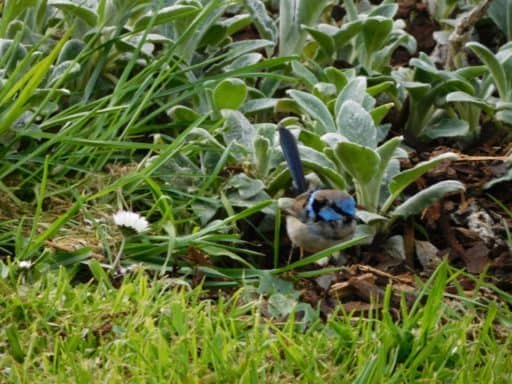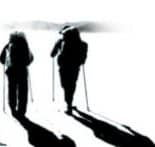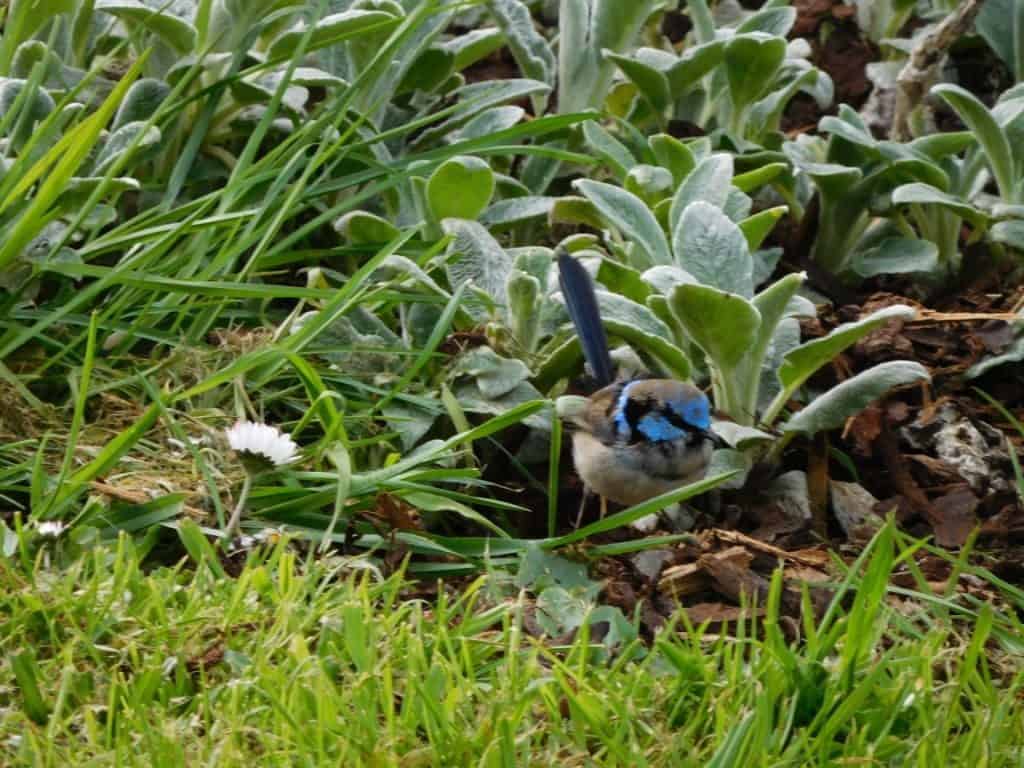I love this poem (much as I hate the war that stole the poet from us – and that he foresaw his own death in it!) I so agree with the sentiment. It is the small acts of conservation count most. We have an archway I constructed 20+ years ago harbours many fine birds who are maybe our friends. The wrens and antechinus love the blackberries I labour to destroy. The pardalotes find a home in a raw bulldozer cut on the hillside. The sea eagles nest in the open cut, finding the cliffs to their liking. The peregrine sees the Power Station stacks as merely an eyrie. The whistling kites hunt the ‘pest’ tilapia in the Hazelwood Pondage. Marsh warblers sing from the cumbungi in the roadside drains. The thornbills love spiders in our old sheds. Many birds collect our sheep’s cast wool for their nests…life will find a way: we do not need vast National Parks to destroy with vicious wildfire. All such ‘conservation’ is folly:

Fifty Faggots: Edward Thomas 1878-1917
There they stand, on their ends, the fifty faggots
That once were underwood of hazel and ash
In Jenny Pink’s copse. Now, by the hedge
Close packed, they make a thicket fancy alone
Can creep through with the mouse and wren. Next spring
A blackbird or robin will nest there,
Accustomed to them, thinking they will remain
Whatever is for ever to a bird:
This Spring it is too late; the swift has come.
‘Twas a hot day for carrying them up:
Better they will never warm me, though they must
Light several Winters’ fires. Before they are done
The war will have ended, many other things
Have ended, maybe, that I can no more
Foresee or more control than robin and wren.
One thing (at least) I miss about the Hazelwood flats farm were the skylarks, or pipits as they are known here who rose in greeting as I drove round the paddocks; also the whistling kites which I observed still hunting there along the Pondage edge yesterday, as I passed:
To a Skylark: Percy Bysshe Shelley:
Hail to thee, blithe Spirit!
Bird thou never wert,
That from Heaven, or near it,
Pourest thy full heart
In profuse strains of unpremeditated art.
Higher still and higher
From the earth thou springest
Like a cloud of fire;
The blue deep thou wingest,
And singing still dost soar, and soaring ever singest.
In the golden lightning
Of the sunken sun,
O’er which clouds are bright’ning,
Thou dost float and run;
Like an unbodied joy whose race is just begun.
The pale purple even
Melts around thy flight;
Like a star of Heaven,
In the broad day-light
Thou art unseen, but yet I hear thy shrill delight,
Keen as are the arrows
Of that silver sphere,
Whose intense lamp narrows
In the white dawn clear
Until we hardly see, we feel that it is there.
All the earth and air
With thy voice is loud,
As, when night is bare,
From one lonely cloud
The moon rains out her beams, and Heaven is overflow’d.
What thou art we know not;
What is most like thee?
From rainbow clouds there flow not
Drops so bright to see
As from thy presence showers a rain of melody.
Like a Poet hidden
In the light of thought,
Singing hymns unbidden,
Till the world is wrought
To sympathy with hopes and fears it heeded not:
Like a high-born maiden
In a palace-tower,
Soothing her love-laden
Soul in secret hour
With music sweet as love, which overflows her bower:
Like a glow-worm golden
In a dell of dew,
Scattering unbeholden
Its aereal hue
Among the flowers and grass, which screen it from the view:
Like a rose embower’d
In its own green leaves,
By warm winds deflower’d,
Till the scent it gives
Makes faint with too much sweet those heavy-winged thieves:
Sound of vernal showers
On the twinkling grass,
Rain-awaken’d flowers,
All that ever was
Joyous, and clear, and fresh, thy music doth surpass.
Teach us, Sprite or Bird,
What sweet thoughts are thine:
I have never heard
Praise of love or wine
That panted forth a flood of rapture so divine.
Chorus Hymeneal,
Or triumphal chant,
Match’d with thine would be all
But an empty vaunt,
A thing wherein we feel there is some hidden want.
What objects are the fountains
Of thy happy strain?
What fields, or waves, or mountains?
What shapes of sky or plain?
What love of thine own kind? what ignorance of pain?
With thy clear keen joyance
Languor cannot be:
Shadow of annoyance
Never came near thee:
Thou lovest: but ne’er knew love’s sad satiety.
Waking or asleep,
Thou of death must deem
Things more true and deep
Than we mortals dream,
Or how could thy notes flow in such a crystal stream?
We look before and after,
And pine for what is not:
Our sincerest laughter
With some pain is fraught;
Our sweetest songs are those that tell of saddest thought.
Yet if we could scorn
Hate, and pride, and fear;
If we were things born
Not to shed a tear,
I know not how thy joy we ever should come near.
Better than all measures
Of delightful sound,
Better than all treasures
That in books are found,
Thy skill to poet were, thou scorner of the ground!
Teach me half the gladness
That thy brain must know,
Such harmonious madness
From my lips would flow
The world should listen then, as I am listening now.

